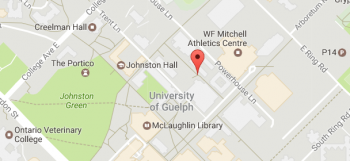Meet Ayisha Ayoub:
About Ayisha
Ayisha Ayoub is an Environmental Science student studying Environment and Resource Management at the University of Guelph, and she is currently working with the Government of Canada in the Department of Fisheries and Oceans as a Physical Data and Information Officer. Ayisha works on geomatics tasks such as mapping shorelines to examine coastal erosion, among other interesting studies. On World Oceans Day, she shares more about her role and projects, a day in the life, her career goals, and her thoughts on this year’s theme, Revitalization: Collective Action for the Ocean.
What is your role in the Department of Fisheries and Oceans? What do you do?
“My role is as a Physical Data and Information Officer for the Canadian Hydrographic Services within the Department of Fisheries and Oceans Canada. I mainly work on geomatics tasks related to GIS, remote sensing, and earth observation by analyzing and manipulating geospatial data for marine navigation, hydrographic technology, and other topics.”
What does an average "day in the life" look like for you in this role?
“I work remotely from my home so each morning I start up my laptop, check my emails, MS Teams notifications, and calendar to get caught up for the day. Then I launch ArcGIS Pro and get started on the project I’m working on at the time. Throughout the day I usually have several virtual meetings to discuss updates with my colleagues or attend informational meetings.”
What's your favourite part about your job?
“My favourite part of my job is being able to apply geomatics skills I’ve learned at school to environmental topics I am passionate about (such as mapping for marine conservation and physical geography).”
How does this job relate to your career goals?
“This job has allowed me to experience an office setting work environment while using geomatics to carry out environmental related projects which aligns very closely with what I have aspired to do in my career. It's been very eye opening to see some of the ways geomatics can be applied in work settings to monitor natural areas.”
World Ocean's Day's theme this year is Revitalization: Collective Action for the Ocean. What does that mean to you?
“To me, this year’s theme shows a global recognition of the ways we have harmed marine ecosystems and recognizes the importance of regenerating these areas by uniting and tackling these issues on a larger scale.”
How do you think you are contributing to collective action for the ocean?
“I focus on mapping shoreline for nautical navigational aids which ultimately helps mitigate oil spills, ship groundings, etc., and therefore protect aquatic environments. There is always more to be done and other ways to get involved which is why I'm also getting scuba certified in my spare time so I can take part in marine clean-up projects for garbage and invasive species control.”
What's one thing you would want everyone to know about the work you do?
“Any workplace today that uses geomatics is a quickly evolving space as GIS and remote sensing techniques become more developed and advanced right before our eyes. There is a lot of adaptation and flexibility that comes with this as you are frequently learning new advancements made in the geomatics world- it's an exciting time for this field.”



